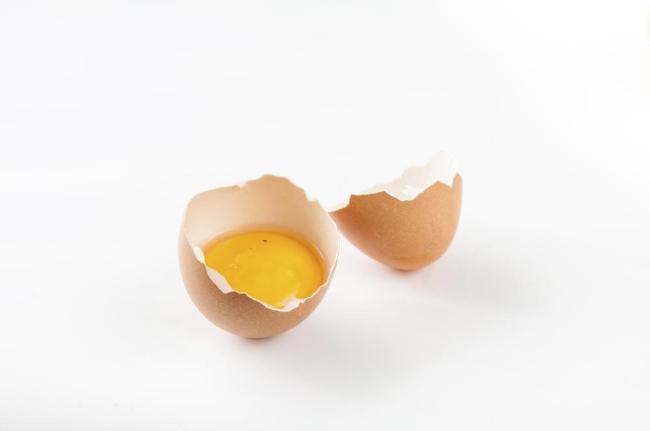Egg yolks are one of the most nutrient-dense, antioxidant-rich and vitamin-laden foods on the planet!
Eat the entire egg!
One large egg contains:
Vitamin B12: 9% of the RDA.
Vitamin B2: 15% of the RDA.
Vitamin A: 6% of the RDA.
Vitamin B5: 7% of the RDA.
Selenium: 22% of the RDA.
Eggs also contain small amounts of almost every vitamin and mineral required by the human body… including calcium, iron, potassium, zinc, manganese, Vitamin E, Folate and many more.
A large egg contains 77 calories, with 6 grams of quality protein, 5 grams of fat and trace amounts of carbohydrates. It is one of the few food sources for Vitamin D, a vitamin that many women are low on.
It’s important to note that almost all the nutrients are contained in the yolk, the white contains only protein.
Summary: EGGS ARE HEALTHY!
Eggs are an awesome food for weight loss
Eating a protein rich breakfast will leave you feeling fuller longer and help curb later snack attacks. The high fat/protein ratio in eggs, and low calorie food is one of the best ways to start the day.
Eggs aren’t the enemy in bad cholesterol
Eating the whole egg gets a bad rep for having too much cholesterol.
The ‘health world’ quickly switched to eating only egg whites early on, when reports started to come out about the risks of high cholesterol. Don’t get me wrong egg whites are a great source of protein in your diet, but I still think there is good reason to eat the entire egg.
The real threat to high cholesterol is saturated and trans fats, not dietary cholesterol. Unless you have been specifically cautioned by your docotor due to health issues, I say enjoy the nutritional value of the whole egg. Your body needs the cholesterol in meat and eggs to make testerone to help build muscle and burn fat, and the cholesterol in eggs has been proven to actually lower LDL, or bad cholesterol, in your body.
Egg Break Down
Yolk
Most of the egg’s vitamins are found in the yolk. Also, this is where all of the fat and half of the protein is.
Egg White
The white is made of protein and water. A slight cloudiness indicates extreme freshness. As eggs age, the white becomes thinner and clearer.
Egg Shell
The shell keeps out bacteria. Never use an egg with a cracked or split shell.
Buying Guide
Freshness
There are two dates, a sell-by date and a pack date. The pack date is the day the eggs were packed, generally within a week from when they were laid (legally this can be as long as 30 days). The sell-by date is the legal limit until which eggs may be sold and is within 30 days of the pack date. Basically, a carton of eggs may be up to two months old by the sell-by date.
According to USDA, eggs are ok for consumption for an additional three to five weeks past the sell-by date if refrigerated.
Color
The color of the egg depends on the breed of the chicken. It hasn’t been proven that shell color (brown or white) has any effect on flavor or nutritional value.
Storing
Store eggs on a shelf in the refrigerator where the temperature is below 40 degrees. They are best kept in their original carton. If they are removed they may absorb flavors from other foods. The carton also helps maintain correct humidity which is ideally 70-80 percent.
What do you think? Eat the whole egg – or are you an egg white only eater?
